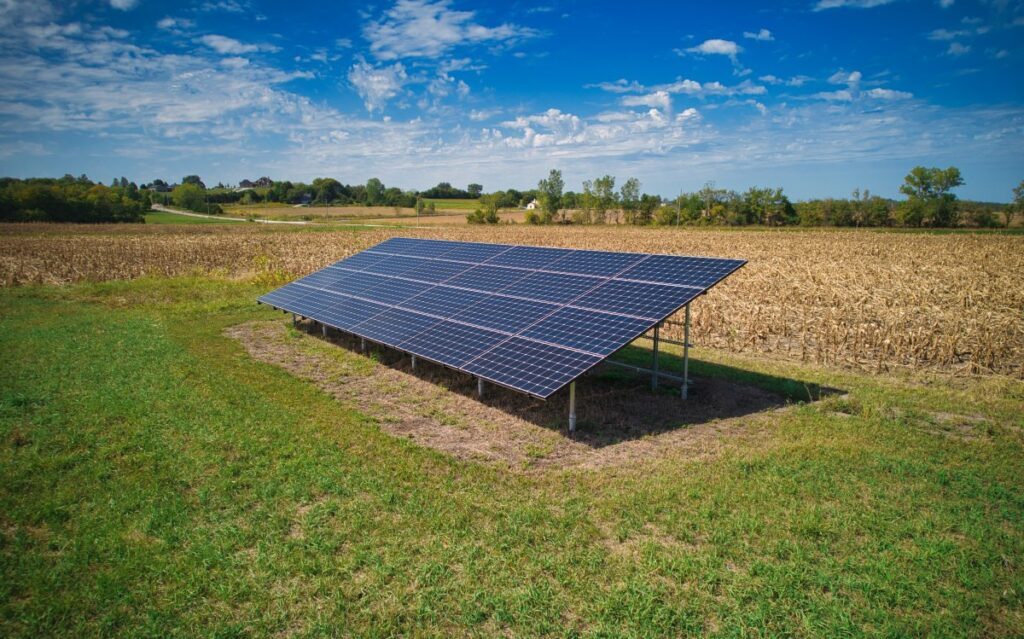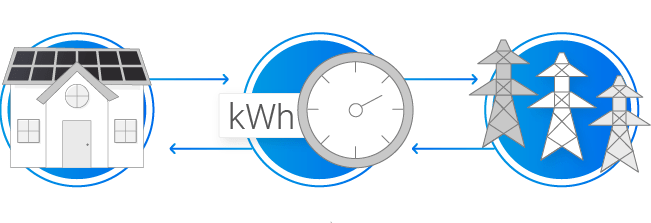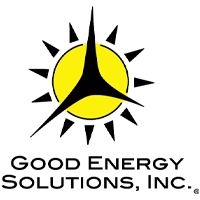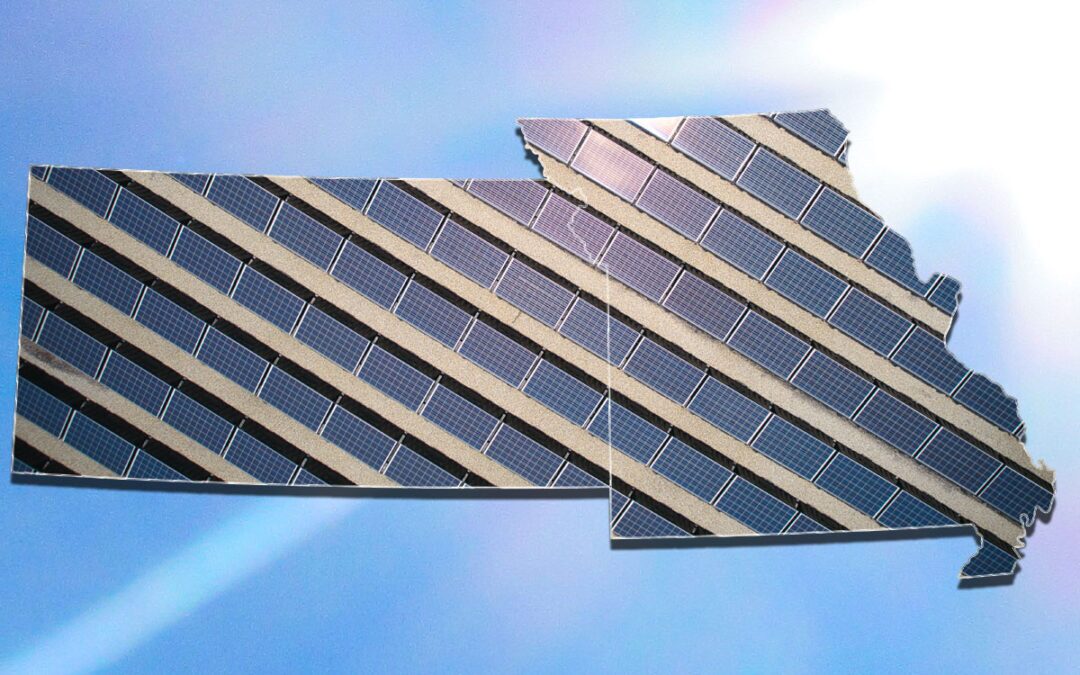When most people think of solar power, they picture desert states like Arizona or Nevada. But here’s the surprise: Kansas and Missouri offer some of the best solar potential in the country once you consider sunlight availability, land conditions, and favorable net-metering policies.
If you’re in either of these states, you’re sitting on a strong opportunity to turn sunlight into long-term energy savings.
The Heartland Has Plenty of Sunshine
Both Kansas and Missouri enjoy abundant solar irradiance, meaning the total energy the sun provides across a given area.
Kansas averages between 4.8 and 5.5 peak sun hours per day, comparable to southern states like Georgia and Tennessee.
Missouri averages 4.5 to 5.0 peak sun hours per day, depending on your location (higher in the west, slightly lower in the Ozarks).
That might not sound like much difference, but for a well-sized solar array, this translates to thousands of kilowatt-hours of annual generation per household or business.
Why it matters:
More consistent sunlight means your panels spend more time generating at peak capacity, which shortens your payback period and increases your overall return on investment.

A solar ground mount located in Baldwin City, Kansas
Geographic Location = Reliable Production
Kansas and Missouri both sit in a mid-continental climate zone with relatively clear skies and moderate seasonal variation. While both states experience some snow and cloud cover during winter months, spring through fall are consistently sunny.
Because they’re not coastal or mountainous, they avoid major shading issues and benefit from wide-open skies, especially in rural and suburban areas.
Kansas’ flatter terrain and agricultural landscape make it ideal for ground-mounted systems or large-scale commercial solar farms.
Missouri’s mix of open farmland and suburban rooftops means plenty of space and good southern exposure for residential and business solar installations.
Bottom line: The geographic balance of sunlight, moderate temperatures, and open land makes both states excellent for year-round solar efficiency.
Net Metering Maximizes the Value of That Sunshine
It’s not just how much sunlight you get. It’s what you can do with it.
Both Kansas and Missouri offer net-metering programs, which allow you to send excess solar power back to the grid and receive credits on your utility bill.
Here’s how it helps:
During sunny days, your panels may produce more power than you need.
Your utility gives you credit for that excess energy.
Later (for example, at night or during winter months), you draw on those credits to offset your consumption.
Your solar system acts like a virtual battery, giving you credit for excess energy to help offset your power use at night or on cloudy days.

Kansas Net Metering:
- Available for most investor-owned utilities (like Evergy).
- Systems up to 15 kW (residential) or 100 kW (commercial) can qualify.
- Excess energy is credited at the utility’s “system average cost,” which is a lower wholesale rate, not the full retail rate.
- Any credits remaining at the end of a monthly billing period expire. This means you do not carry forward excess credits from one month to the next.
Missouri Net Metering:
- State-mandated for all electric utilities up to 100 kW systems.
- If you generate more electricity than you use in a month, the excess is credited to your bill at an avoided-cost rate. This credit is applied to future bills, but it expires if not used within 12 months.
With these programs in place, solar in Kansas and Missouri doesn’t just make environmental sense. It’s financially smart, too.
Consistent Annual Generation = Predictable Returns
Unlike states with heavy cloud cover or long winters, Kansas and Missouri’s consistent solar exposure means stable year-over-year energy production.
In practice, a properly oriented solar system in either state can generate 1,300–1,600 kWh per installed kilowatt each year, comparable to or even better than many mid-Atlantic and northern states.
This consistency is key for:
- Businesses looking to forecast long-term energy costs.
- Homeowners wanting predictable savings and faster payback periods.
- Investors seeking stable returns from commercial or community solar projects.
Central Location, Local Impact
Because Kansas and Missouri sit in the geographical center of the U.S., both states benefit from lower solar equipment shipping costs, strong interconnection networks, and growing local installer markets. Combined with high solar potential and favorable policies, this makes solar a practical and cost-effective energy solution for the region.
The Bottom Line
While they might not top the national charts for total sunlight hours, Kansas and Missouri’s combination of strong solar resources, open geography, and solid net-metering programs make them excellent (and often underrated) places to go solar.
If you live or operate a business in either state, you’re in a prime position to:
• Generate reliable, clean electricity year-round.
• Lower your utility bills through net-metering credits.
• Take advantage of federal and local incentives.
• Increase your property value while cutting your carbon footprint.
In short, the Midwest sun is working hard for you. You just have to capture it.
FAQs
1. Why do Kansas and Missouri get enough sunlight to make solar power viable?
Kansas averages 4.8–5.5 peak sun hours per day, while Missouri averages 4.5–5.0, depending on location. That steady solar irradiance means panels can generate a significant amount of electricity, helping shorten the payback period and boost return on investment.
2. How does the geography of these states affect solar production?
Because Kansas and Missouri sit in a mid-continental, relatively flat climate zone, they benefit from wide-open skies and few shading issues. Kansas’s flat, agricultural terrain is ideal for ground-mounted or utility-scale solar, while Missouri has a mix of open farmland and rooftops that work well for residential or business systems.
3. What net metering options are available in Kansas and Missouri?
Kansas: Net metering is available for most investor-owned utilities (like Evergy). Systems up to 15 kW (residential) or 100 kW (commercial) can qualify. Credits for excess energy are given at the system average cost, and any remaining credits at the end of the billing period expire.
Missouri: State-mandated net metering applies to utilities for systems up to 100 kW. Excess energy is credited at an avoided-cost rate, and those credits expire if unused after 12 months.
4. Are solar energy returns predictable in Kansas and Missouri?
Yes — thanks to consistent annual solar exposure, systems in these states generate relatively stable energy year to year. Good Energy Solutions estimates a properly oriented system can produce 1,300–1,600 kWh per installed kilowatt per year, which makes financial returns more reliable.
5. Does being centrally located in the U.S. give Kansas and Missouri any advantages for solar?
Absolutely. Their central location helps reduce shipping costs for solar equipment. Additionally, a growing local solar installer market and strong grid interconnection make it easier and more cost-effective to design and deploy solar systems in these states.
SEE IF YOUR HOME OR BUSINESS IS A GOOD MATCH FOR SOLAR
GET A FREE QUOTE
 Our mission at Good Energy Solutions is to provide our customers with honest, real solutions to reduce their fossil fuel consumption and lower their long term energy costs. Our combination of hands-on experience, education, and outstanding customer service make our company the clear choice to help you achieve your energy goals.
Our mission at Good Energy Solutions is to provide our customers with honest, real solutions to reduce their fossil fuel consumption and lower their long term energy costs. Our combination of hands-on experience, education, and outstanding customer service make our company the clear choice to help you achieve your energy goals.
Founded in 2007 by Kevin and Shana Good, Good Energy Solutions has earned a reputation for our expert reliable service, long workmanship warranties, and quality commercial and residential solar installations.
We are engineers and craftsmen designing for efficiency while keeping aesthetics and longevity in mind. Because of our installation quality and customer service, Good Energy Solutions' solar panel systems feature some of the longest product and service warranties in Kansas and Missouri. Also, we have more NABCEP® Certified Solar Professionals on staff than any other company in Kansas or Missouri. To achieve this certification, PV installers must demonstrate that they possess extensive solar PV installation experience, have received advanced training, and passed the rigorous NABCEP certification exam.
If you would like to know more about solar power for your home or business, contact us here.

